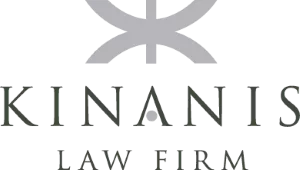- within Criminal Law topic(s)
A. INTRODUCTION
While jurisdictions and legal systems around the world are expressing concern about cryptocurrencies, Malta is promulgating legislation that should give exchange owners and users certainty about the future. The rules are considered to be a one-stop-shop package that will deal with the establishment of a new authority, regulated exchanges and license Initial Coin Offering (ICO) companies and related business. The main aim is to offer legal certainty to the industry.
Following the plans of crypto-giants to relocate to Malta, many others are following suite, and the tiny Mediterranean island is expecting to see a surge in licensing applications for such related-businesses.
Every other jurisdiction around the world is currently experiencing a lacuna in the regulatory framework, absence of definitions and lack of supervisory expertise on the subject. In fact, all regulators worldwide are applying existing securities and financial market legislation to Initial Coin Offerings (ICOs) and issue guidelines as to the risks involved and the applicability of such laws on ICOs.
Needless to say, this does not work smoothly, and it is more than evident that ad hoc legislation is the only way forward. In fact, the Maltese government is doing precisely this at the moment and has embarked on this pioneering project in 2018 in order to become the first jurisdiction worldwide to regulate ICOs and Blockchain Technology.
B. PROPOSED LEGISLATION
In order to further render Malta a natural jurisdiction of choice for ICOs, the Maltese Government has recently tabled three Bills in Parliament in order to thoroughly regulate the DLT and ICO business.
In essence, the Bills presented in Parliament are the following:
- Malta Digital Innovation Authority Act, 2018
- Technology Arrangements and Services Act, 2018
- Virtual Financial Assets Act, 2018
All Bills revolve around the concept of Distributed Leger Technology or decentralised ledger technology, "DLT", and define this technology as follows:
DLT, "distributed ledger technology", "decentralised ledger technology" means a data base system in which information is recorded, consensually shared, and synchronised across a network of multiple nodes, or any variations thereof.
The Bills describe a "DLT Asset" as:
- a virtual token;
- a virtual financial asset;
- electronic money; or
- a financial instrument
that is intrinsically dependent on, or utilises, Distributed Ledger Technology.
C. THE BILLS
1. MALTA DIGITAL INNOVATION AUTHORITYACT, 2018
This Bill sets-up the Malta Digital Innovation Authority ("the Authority") and hence establishes the roles and responsibilities of the Authority vis-à-vis DLT and ICO businesses.
The main duties of the authority shall be to address the development in Malta of all innovative technology arrangements and innovative technology services in order to achieve the principles and objectives of the Act.
It shall be the duty of the Authority to exercise such supervisory and regulatory functions in the field of innovative technology arrangements and innovative technology services as may from time to time be assigned to the Authority by any special law.
The Authority shall, among others:
- regulate, monitor and supervise the provision of such innovative technology arrangements and innovative technology services;
- keep under review all practices, operations and activities relating to any matter regulated by or under this Act or any other special law which the Authority is entitled to administer or enforce;
- provide facilities for the recognition, certification, registration, or otherwise grant or issue of any authorisation for the carrying out of any lawful operation or activity relating to any matter regulated by any special law which the Authority is entitled to administer or enforce;
- regulate the innovative technology products, operations or activities relating to any matter regulated by any special law which the Authority is entitled to administer or enforce, and ensure high standards of conduct and governance throughout the innovative technology arrangements industry;
- establish minimum quality, compliance and security standards for any innovative technology arrangements and innovative technology services and regulate such sectors as may be necessary to protect the general public;
- monitor the working and enforcement of laws that directly or indirectly affect the use and operation of innovative technology arrangements and innovative technology services and undertake or commission such study, research orinvestigation which it may deem necessary in this regard;
- provide information and issue guidelines relating to any matter regulated by or under the law, or any other special law which the Authority is entitled to administer or enforce;
- establish the minimum qualifications, if any, to be possessed by any person who is engaged or employed in any activity regulated by the law or by any special law which the Authority is entitled to administer or enforce.
The Authority hence will act as the supervisor of blockchain regulation. It is expected that during the course of time, the Authority shall issue further policies and ad hoc regulation in order to substantiate the laws and keep abreast with the developments of the industry.
2.TECHNOLOGY ARRANGEMENTS AND SERVICES ACT, 2018
The main aim of this Bill is to give powers to the Authority to officially recognize "Innovative Technology Arrangements" ("ITAs") or any "Innovative Technology Services" ("ITS") as defined.
In fact, any person who desires to obtain such recognition may apply to the Authority via prescribed forms. The Bill also details out the method of certification and gives added powers to the Authority to further promulgate guidelines accordingly. Following registration, a certificate will be provided containing respective registration details and will be made available to all ITA users in a bid to increase transparency and certainty.
The Authority shall not recognize an ITA unless it is satisfied that:
- All arrangements, organization and stakeholders are fit and proper;
- Software has been reviewed by an independent registered systems auditor who must confirm that the ITA meets the required standards;
- Compliance with all laws is made;
- ITA must have a registered technical administrator in office at all times.
The Bill also authorizes the Authority to register the ITS providers, who may be made in relation to persons, being individuals or legal organizations, whether having legal personality or not. In order to register the ITS provider, the authority must make sure that the latter is:
- Fit and proper;
- Duly qualified; and
- Has sufficient technical resources.
Duly appointed ITS Providers shall be considered to be professionals who act as fiduciaries in relation to the information submitted to them by any customers and shall also be bound by the provisions of the Professional Secrecy Laws.
When the applicant is not ordinarily resident in Malta, he is required to appoint in writing prior to registration, a resident agent who shall serve as the channel of communication between the Authority and act as a judicial representative of the ITA.
The term "Innovative Technology Arrangements" is defined as:
- Software and architectures which are
used in designing and delivering DLT which ordinarily;
- uses a distributed, decentralized, shared and, or replicated ledger;
- may be public or private or hybrids thereof;
- is permissioned or permission less or hybrids thereof;
- is immutable;
- is protected with cryptography; and
- is auditable;
- Smart contracts and related applications, including decentralized autonomous organizations, as well as other similar arrangements;
- Any other innovative technology arrangement which may be duly defined by the authorities.
On the other hand, the following are defined as "Innovative Technology Services":
- the review services referred to in the law with reference to innovative technology arrangements provided by system auditors;
- the technical administration services referred to in the law with reference to innovative technology arrangements provided by technical administrators.
The term of validity of authorization is as follows:
- Certification of Innovative Technology Arrangements - 3 years;
- Registration of Systems Auditors - 2 years; and
- Registration of Technical Administrators - 3 years
3. VIRTUAL FINANCIAL ASSETS ACT 2018
The aim of this Bill is to regulate the field of Initial Virtual Financial Asset (VFA) Offerings and Virtual Financial Assets and to make provision for matters ancillary or incidental thereto or connected therewith.
Definitions
Initial virtual financial asset offering" or "initial VFA offering" means a method of raising funds whereby an issuer is issuing virtual financial assets and is offering them in exchange for funds.
VFA is defined as any form of digital medium recordation that is used as a digital medium of exchange, unit of account or store of value and that is not:
- electronic money;
- a financial instrument; or
- a virtual token.
"Virtual token" means a form of digital medium recordation that has no utility, value or application outside of the DLT platform on which it was issued and may only be redeemed for funds on such platform directly by the issuer of such DLT asset. Provided however that electronic money shall be excluded from this definition.
Licensing Requirements
In fact, it will be mandatory for a person to have a license in order to provide a VFA service in or from within Malta. It will be up to the Authority to determine that:
- an activity constitutes a VFA service; or
- a DLT asset qualifies as a virtual financial asset, a virtual token, electronic money or a financial instrument, and whether or not issued in Malta; or
- a VFA service is provided in or from within Malta; and
- an initial VFA offering has been/is being made in or from within Malta.
All applications for license shall be made solely through a VFA agent, which is duly registered with the Authority. The role of the VFA agent shall be to ensure that the applicant is a fit and proper person to provide the VFA services.
Once a license is issued, the Authority shall keep a public register of all license holders. It is important to keep in mind that licenses or any beneficial ownership in license holders may not be assigned or transferred without prior consent from the Authority.
License Holders
License Holders shall ensure that at all times, its members of the board of administration shall be of sufficient good repute, possess sufficient collective knowledge, skills and experience and commit sufficient time to perform their duties and be able to understand the license holder's activities, including the main risks.
Every such license holder is subject to fiduciary obligations, and hence must act with honesty and integrity.
Advertainment is likewise regulated. In fact, no person, other than license holders, may issue or cause to be issued an advertisement relating to a VFA service in or from within Malta unless its contents have been vetted and approved by the licence holder's board of administration
Offering of a Virtual Financial Asset
The Bill also lays down that no issuer shall offer a virtual financial asset ("VFA") to the public in or from within Malta or shall apply for a virtual financial asset's admission to trading on a DLT exchange unless such issuer draws up a whitepaper.
The main requirements, amongst others, of the whitepaper are as follows:
- Must be signed by every board member;
- Confirmed by the VFA agent that it compliance with the laws;
- Has been delivered to the Authority;
- Has been duly registered by the Authority;
- Includes a statement by the Board that it complies with the legal requirements;
- Contain mandatory disclosures;
- Must be drafted in English and any other language at the issuer's discretion;
- It must include a summary in brief and non-technical language while providing key-information in relation to the offering, together with mandatory warnings;
- It must include a detail of persons responsible for the whitepaper; and
- Must also include all ancillary details, characteristics and descriptions of the offer, related service providers, type of financing, target base etc.
The Bill also highly regulates advertisements either via the promoter's website or otherwise.
The issuer shall be required to appoint and have at all times a VFA agent, who needs to be registered with the Authority and ensure that all statutory requirements are adhered to.
Admissions of VFA to trading on a VFA exchange shall also be made possible, provided that this is done through a VFA agent. However, it is important to keep in mind that the offering of virtual financial assets, or the admission to trading on a DLT exchange, in a country outside Malta shall be subject to the laws of that country.
The Bill also specifies that the issuer shall be liable for damages sustained by a person as a direct consequence of such person having bought virtual financial assets, either as part of an initial VFA offering by such issuer or on a DLT exchange, on the basis of information contained in the whitepaper, website or advertisement by reason of any untrue statement included therein.
Ancillary Regulation
The person doing the VFA offerings has to keep in mind compliance with the following applicable laws:
- Prevention of Market Abuse Laws, including Prohibition of Insider Dealing regulations;
- Anti-Money Laundering Regulations; and
- Competition Law
Transitory Provisions
Any person who is conducting any regulated activity is required to comply with the new laws once they come into force. The Bill provides stipulated time-frames within which to comply, depending on the nature of the activity:
- Persons involved in Initial VFA offerings and admission to trading on a DLT exchange must within six months from the date of coming into force of the laws, draw up a whitepaper and register it with the Authority. It has been also clarified that such a person may continue to undertake this activity or provide such service until the whitepaper has been registered with, or the application has been determined by the Authority.
- Persons providing the services of a VFA agent, shall, within one month, apply to the Authority for registration.
- Persons providing a VFA service, shall, within twelve months apply to the Authority for license.
CONCLUSION
The innovative blockchain technology has entered our life and powerfully continues to lead any new sophisticated development in all areas of business. It came and will stay despite the warnings and hesitations from various bodies including governments. The wise decision is not to hide and try to avoid it but face it and regulate it. The sooner governments realize this the better for them and their subjects. Malta took the initiative first and this will have tremendous benefits for the Maltese and the businesses worldwide. The Bills to be enacted seem promising to regulate in a reasonable way the blockchain technology and the promising new way of crowdfunding through ICOs.
The content of this article is intended to provide a general guide to the subject matter. Specialist advice should be sought about your specific circumstances.




